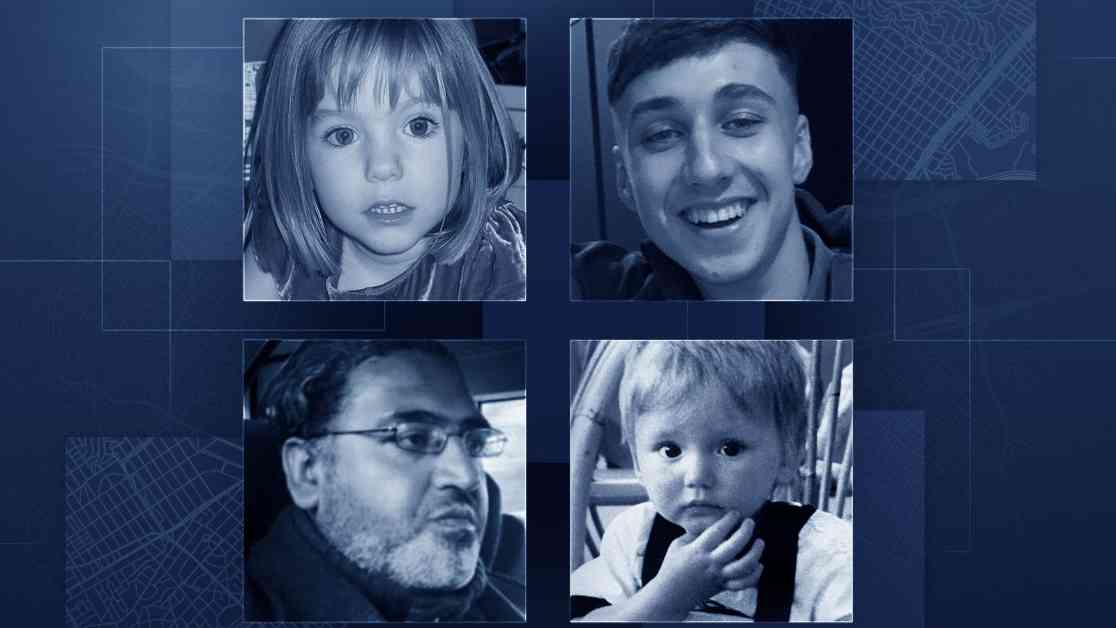British Nationals Missing Abroad: The Heartbreaking Reality of Families Left in Limbo
Eleven years have passed since Sanjiv Kundi disappeared in Paris, leaving his family in a state of perpetual uncertainty. Pip, his older sister, still remembers the day he left their family home in Leamington Spa, Warwickshire, for a week’s holiday, never to return. His absence is a constant presence in their lives, with his room remaining untouched and a vacant chair at the family table always haunting them.
Sanjiv was a beloved son, the “apple of my parents’ eye,” surrounded by four sisters who adored him. However, his struggles with mental health in the years leading up to his disappearance cast a shadow over his departure. Described as distinctive looking, standing at 6ft 2in with dark, greying curly hair and a beard, he was last seen wearing glasses, a heavy brown coat, and brown cargo trousers when he arrived in Paris. Despite arriving at Gare du Nord station on the evening of 25 September 2013, his movements thereafter remain shrouded in mystery.
The impact of Sanjiv’s disappearance on his family has been immeasurable. His elderly parents, now in their 80s, and grown nephews are no closer to finding answers about his whereabouts. Pip is left to ponder the possibilities of his fate – whether he fell victim to a crime, met with a sinister end, or chose to disappear intentionally. What remains certain is the void he left behind, with Pip expressing that “somebody somewhere knows something.”
Families like Pip’s who are grappling with the anguish of a missing loved one abroad face a daunting journey of uncertainty and isolation. The LBT Global charity, which aids families in such situations, receives thousands of inquiries annually, yet only a fraction of cases garner the same level of attention as high-profile incidents involving young, photogenic, or famous individuals. Matt Searle, LBT Global’s chief executive, notes that middle-aged men and those with mental health issues often do not receive the same media coverage as others, highlighting the disparities in public attention.
The attention drawn to cases like Madeleine McCann’s disappearance in 2007 has set a precedent for what captures the public’s interest. While police in the UK are obligated to pass on information to foreign authorities through Interpol, they lack jurisdiction to conduct investigations overseas. Currently, there are 69 Interpol yellow notices for missing British nationals, including high-profile cases like Madeleine McCann’s.
The challenges faced by families of missing individuals abroad are compounded by the lack of support from authorities in some countries. Matt emphasizes the difficulties of navigating foreign legal systems and cultural barriers, where a “missing foreigner is absolutely bottom of the pile.” The absence of coordinated efforts from government agencies often leaves families to conduct their own searches, facing language barriers and logistical hurdles in the process.
For Pip’s family, the search for Sanjiv has been marked by frustration and despair. Despite their relentless efforts to locate him, including distributing leaflets, appearing in media outlets, and visiting morgues and hospitals in Paris, they have been met with a lack of progress. The absence of closure weighs heavily on them, as they grapple with the uncertainty of not knowing what befell Sanjiv on that fateful day in 2013.
The Missing People charity, which assists families of missing individuals, sheds light on the staggering number of people reported missing in the UK each year. While high-profile cases like Madeleine McCann and Ben Needham receive extensive media coverage, many others, like Sanjiv, struggle to capture the same level of attention. The disparity in media representation underscores the challenges faced by families like Pip’s in their quest for answers.
Despite the harrowing ordeal faced by families of missing individuals abroad, organizations like LBT Global offer a glimmer of hope. With over 860 open cases dating back two decades, the charity has a track record of resolving a significant portion of them. Whether through locating missing persons, uncovering their fate, or providing closure to families, these efforts offer a beacon of light in the darkness of uncertainty.
In the case of Alex Batty, who went missing at the age of 11 and was reunited with his grandmother after a six-year absence, there is a testament to the resilience and perseverance of families in search of their loved ones. The emotional toll of living in limbo, not knowing whether a missing family member is alive or dead, is a burden that many families bear in silence.
As families like Pip’s continue to navigate the complexities of searching for missing loved ones abroad, the message of never losing hope resonates deeply. The enduring strength and determination of families in the face of adversity exemplify the unwavering bond that transcends time and distance. While the road ahead may be fraught with challenges and uncertainties, the unwavering love and commitment to finding answers serve as a guiding light in the darkness of the unknown.
For those grappling with the anguish of a missing loved one, organizations such as Missing People offer a lifeline of support and guidance. Through their helpline and resources, families can find solace in knowing that they are not alone in their struggles. The journey of searching for a missing family member is fraught with emotional highs and lows, but the resilience and determination of families like Pip’s serve as a testament to the enduring power of love and hope in the face of adversity.












